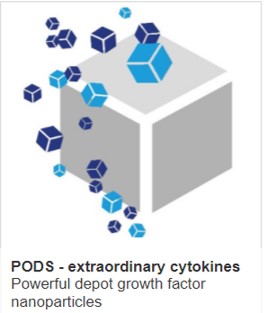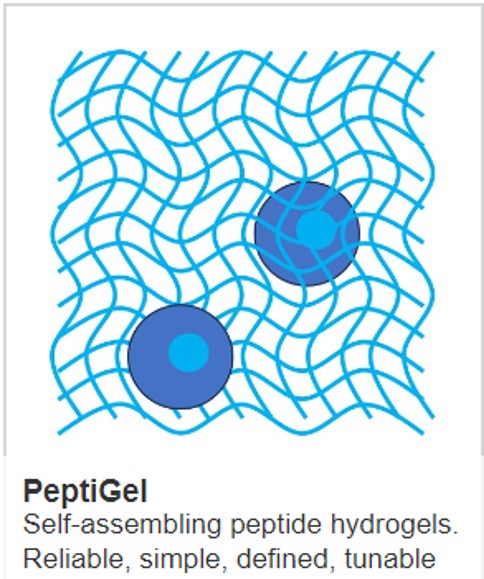Fatal attraction: chemokine therapeutics

Chemokines are promising modalities in the treatment of disease. These small signaling proteins, primarily known for their role in directing the movement of immune cells, are now being explored for their therapeutic potential in a range of conditions, from cancer to chronic inflammatory diseases.
Understanding Chemokines
Chemokines are a subset of cytokines, which are proteins secreted by cells to communicate and orchestrate immune responses. They play a crucial role in immune surveillance by guiding leukocytes (white blood cells) to sites of infection, inflammation, or injury. This ability to direct cell movement makes chemokines attractive targets for therapeutic intervention.
Chemokines in Cancer Therapy
One of the most exciting areas of chemokine research is in cancer therapy. Tumors often manipulate chemokine signaling to create a microenvironment that supports their growth and evades immune detection. Chemokines can be released by cancer to support the recruitment of immune cells that support the cancer, By targeting these pathways, or getting the cancer to secrete chemokines that recruit cancer-fighting immune cells, researchers aim to disrupt the tumor’s protective environment and enhance the body’s immune response to cancer cells.
CXCL12/CXCR4 Axis: One of the most studied chemokine pathways in cancer is the CXCL12/CXCR4 axis. CXCL12, also known as stromal cell-derived factor 1 (SDF-1), binds to the CXCR4 receptor, which can be overexpressed in cancers, including breast, lung, and prostate cancers. This interaction promotes tumor growth, angiogenesis, and metastasis. Drugs that block the CXCL12/CXCR4 interaction, such as Plerixafor (Mozobil), are being investigated for their potential to inhibit cancer progression and are already approved for use in mobilizing hematopoietic stem cells for transplantation.
CCL2/CCR2 Pathway: Another promising target is the CCL2/CCR2 pathway, which is involved in recruiting monocytes to tumor sites. Inhibitors of this pathway are being tested in clinical trials for their ability to reduce infiltration by tumor-associated macrophages, which often support tumor growth and suppress immune responses.
T cell recruiting chemokines: Chemokines, including CXCL9/10/11 help recruit cancer-fighting CD8 T cells and NK cells to cancer. Increasing the amounts of these chemokines secreted by cancer can therefore help to tip the tumour microenvironment into a tumour suppressive one. Combining such chemokines with cytokines, such as IL-2, that can then activate the recruited immune cells ability may provide a powerful approach to treating cancer. One way to achieve these dual goals would be the use of cytokine and chemokine drug depots placed within cancer. At Cell Guidance Systems were collaborating with CRUK to explore the use possible use of PODS protein crystals to achieve this, even in disseminated disease.
Cell Guidance Systems is evaluating the use of phagocytic immune cells to act as Trojan horses against cancer
Chemokines in Autoimmune and Inflammatory Diseases
In autoimmune diseases, the immune system mistakenly attacks the body’s own tissues, leading to chronic inflammation and tissue damage. Chemokines play a significant role in the recruitment of immune cells to sites of inflammation, making them potential targets for therapeutic intervention in these conditions.
CCL5/RANTES: CCL5, also known as RANTES (Regulated upon Activation, Normal T Cell Expressed and Secreted), is a chemokine involved in the recruitment of T cells, eosinophils, and basophils to inflammatory sites. Inhibitors targeting the CCL5 pathway are being explored for their potential to treat autoimmune diseases such as rheumatoid arthritis and multiple sclerosis by reducing the influx of inflammatory cells into affected tissues.
CXCL10/IP-10: CXCL10, also known as IP-10 (Interferon gamma-induced protein 10), is another chemokine implicated in autoimmune diseases. It attracts T cells to sites of inflammation and is elevated in conditions like systemic lupus erythematosus and type 1 diabetes. Therapies targeting CXCL10 are being developed to mitigate the inflammatory response and prevent tissue damage.
Chemokines in Infectious Diseases
Chemokines can also enhance the immune response against infectious diseases by recruiting immune cells to the site of infection. This approach is being investigated in the context of viral infections, bacterial infections, and even parasitic diseases.
CCL3/MIP-1α and CCL4/MIP-1β: These chemokines are involved in the recruitment of natural killer (NK) cells and other immune cells to sites of infection. They play a role in the body’s defense against viral infections such as HIV. Research is ongoing to explore how modulating these chemokines can enhance antiviral responses and improve outcomes in viral infections.
CXCL8/IL-8: CXCL8, also known as interleukin-8 (IL-8), is a chemokine that attracts neutrophils to sites of bacterial infection. While excessive IL-8 can lead to chronic inflammation, controlled modulation of this chemokine could enhance the clearance of bacterial infections without causing excessive tissue damage.
Chemokines in Clinical Trials
Several chemokine-targeting therapies are currently in clinical trials, reflecting the growing interest in this area of research. For example:
- Plerixafor (Mozobil): Already approved for stem cell mobilization, Plerixafor is being tested in combination with other therapies for its potential to treat various cancers by disrupting the CXCL12/CXCR4 axis.
- CCR5 Antagonists: Originally developed for HIV treatment, CCR5 antagonists are being explored for their potential in cancer therapy and in reducing inflammation in autoimmune diseases. Maraviroc, a CCR5 antagonist, is one such drug being repurposed for these applications.
- CCR2 Inhibitors: Drugs targeting the CCR2 receptor, such as PF-04136309, are in clinical trials for their ability to treat pancreatic cancer and other solid tumors by reducing the recruitment of tumor-promoting macrophages.
- CXCR3 Antagonists: These are being investigated for their potential to treat autoimmune diseases by blocking the recruitment of T cells to inflamed tissues.
The exploration of chemokines as therapeutic targets represents a promising frontier in the treatment of a wide array of diseases. By modulating the immune system’s response, chemokine-based therapies have the potential to enhance the body’s natural defenses against cancer, reduce harmful inflammation in autoimmune diseases, and improve outcomes in infectious diseases. As research progresses, we can expect to see more chemokine-targeting drugs entering the clinic, offering new hope for patients with some of the most challenging medical conditions.
IMAGE Targeting cancer CREDIT Bigstock
Learn more about powerful technologies that are enabling research:



